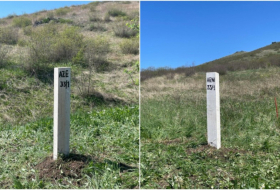The new research on more than 400 first time mothers found the spinal analgesia had no effect on the time it takes for them to deliver their child.
Around one in three women in the UK are given an epidural, but many avoid them, amid fears it will slow their labour and increase the risk of complications.
Guidance from the National Institute of Health and Care Excellence suggests that the pain relief can slow down the second stage of labour, increasing the chance of a forceps birth. Some studies have suggested the injections, in common use since the 1970s, can add more than two hours to labour.
When women are given an epidural, the intensity of contractions is lessened.
Some say the numbness can prolong labour, because it is harder to tell if they are pushing effectively - increasing the risk of complacations.
The new study, from Beth Israel Deaconess Medical Centre (BIDMC), Boston, suggests guidance should be re-examined.
Senior author Professor Philip Hess said: "We found exchanging the epidural anaesthetic with a saline placebo made no difference in the duration of the second stage of labour.
"Not even the pain scores were statistically different between groups. However, pain scores in women receiving the saline placebo increased over time, as would be expected."
The main outcome, the duration of the second stage of labour, was similar between both groups - about 52 minutes for women given active pain medication versus about 51 minutes for those given the saline solution, a difference of just 3.3 percent.
The average times were also similar - 45 and 46 minutes, respectively.
It involves a cocktail of drugs being delivered through a tube, or catheter, injected close to the nerves of the spine.
The study published in Obstetrics & Gynecology found the medication had no effect on how long labour lasted or normal natural childbirth rate.
It also did not increase the incidence of episiotomy, a small incision to enlarge the opening of the vagina, the position of the foetus at birth or any other measure of its wellbeing.
The study compared the effects among 400 healthy, first time mothers who received either an epidural anaesthetic or the saline placebo.
They were all provided with active epidural pain medication through an analgesic pump they controlled themselves in the first stage of labour.
But when they reached the second stage, the participants were selected at random to have low doses of the epidural drugs ropivacaine and sufentanil or the dummy treatment.
None of those in the study knew what was being administered.
Prof Hess: "We didn't see any negative effects, but epidural analgesia in the second stage of labour remains controversial and merits follow up studies."
Three years ago a larger study by a team at the University of California, reported in the same journal, found some women who were given an epidural during labour took more than two hours longer to deliver their child.
The original article was pubslished in the Telegraph.
More about: #health
















































